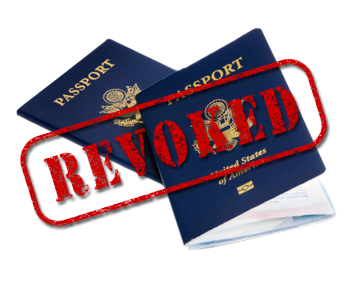President Trump’s executive order for immigrants isn’t the only travel ban that may cause controversy. Under a lower-profile highway spending measure passed in 2015, and signed by President Obama, the IRS can prevent tax debtors from using their passports to leave the country. This ban officially went into effect in 2016, but the IRS is just now rolling out the certification program.
Specifically, the Fixing America’s Surface Transportation (FAST) Act authorizes the IRS to deny, revoke or otherwise limit a passport if you have a seriously delinquent tax debt exceeding $50,000, barring a special exception. According to the law, a “seriously delinquent tax debt” is one in which a (1) a notice of federal tax lien has been filed and all administrative remedies under Section 6320 have lapsed or been exhausted or (2) a levy has been issued. The $50,000 threshold will be adjusted annually for inflation.
But there is some leeway in the rules. Exceptions may apply to tax debts that:
- Are being paid in a timely manner under an installment agreement entered into with the IRS.
- Are being paid in a timely manner under an offer in compromise (OIC) accepted by the IRS or a settlement agreement entered into with the Justice Department.
- Relate to a collection due process hearing that has been requested in a timely manner in connection with a levy to collect the debt.
- Relate to a collection that has been suspended because a request for innocent spouse relief under Section 6015 has been made.
Before it denies a passport, the State Department will hold your application for 90 days to allow you to resolve any erroneous certification issues, make full payment of the tax debt or enter into a satisfactory payment alternative with the IRS. There is, however, no grace period for resolving the debt before the State Department revokes a passport. In other words, a tax debtor might be stopped in line at the airport before he or she boards a plane.
Under the new program, the IRS is required to notify you in writing at the time it certifies a debt as a seriously delinquent tax debt to the State Department. It is also required to provide notice in writing of any reversal of certification. Notice will be sent by regular mail to your last known address.
The IRS will notify the State Department of the reversal of the certification when:
- The tax debt is fully satisfied or becomes legally unenforceable.
- The tax debt is no longer seriously delinquent.
- The certification is erroneous.
Finally, if the IRS has certified your debt to the State Department, you can choose to file suit in the Tax Court or a District Court to determine if the certification is erroneous or if the IRS should have reversed the certification. When warranted, the court can order an immediate reversal.
The IRS will continue to update the procedures affecting passports of tax debtors. Keep checking on the IRS website for new developments.
Thanks for reading CPA Practice Advisor!
Subscribe Already registered? Log In
Need more information? Read the FAQs
Tags: IRS




